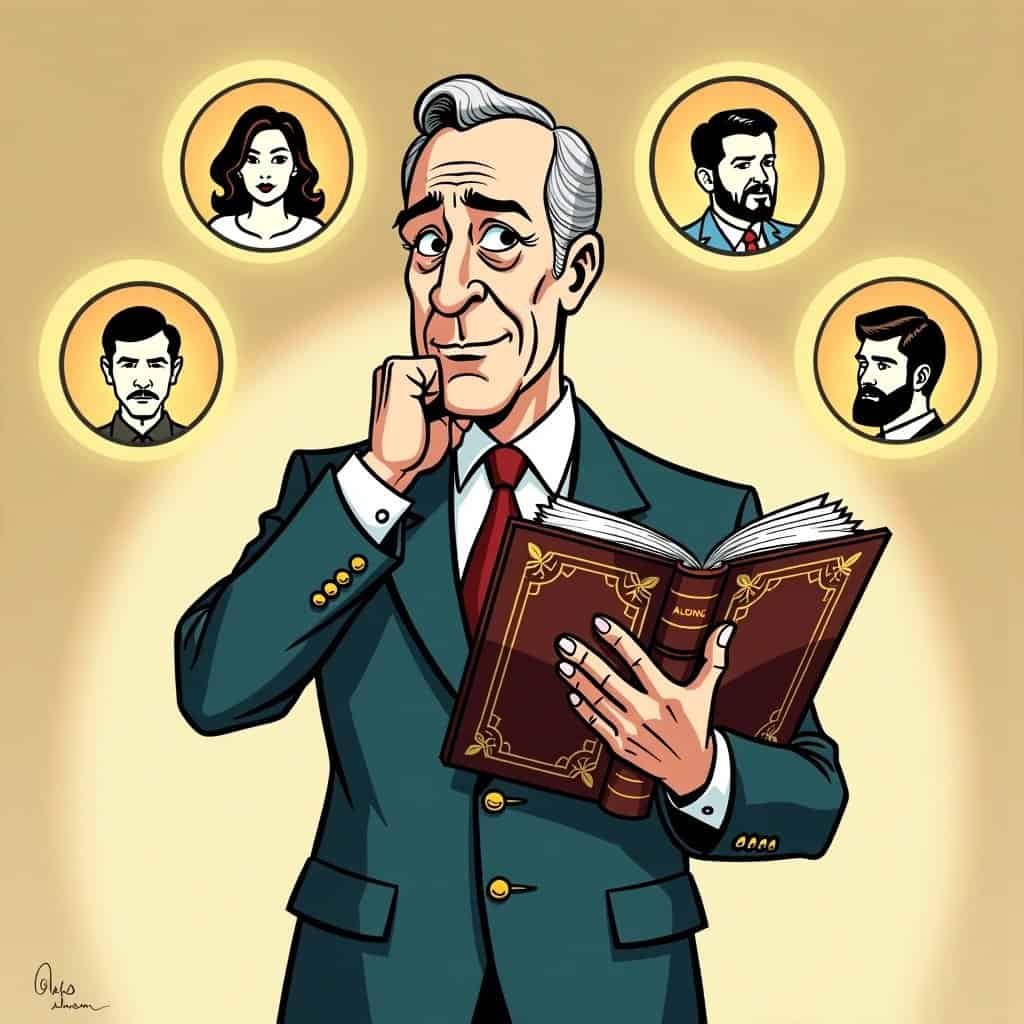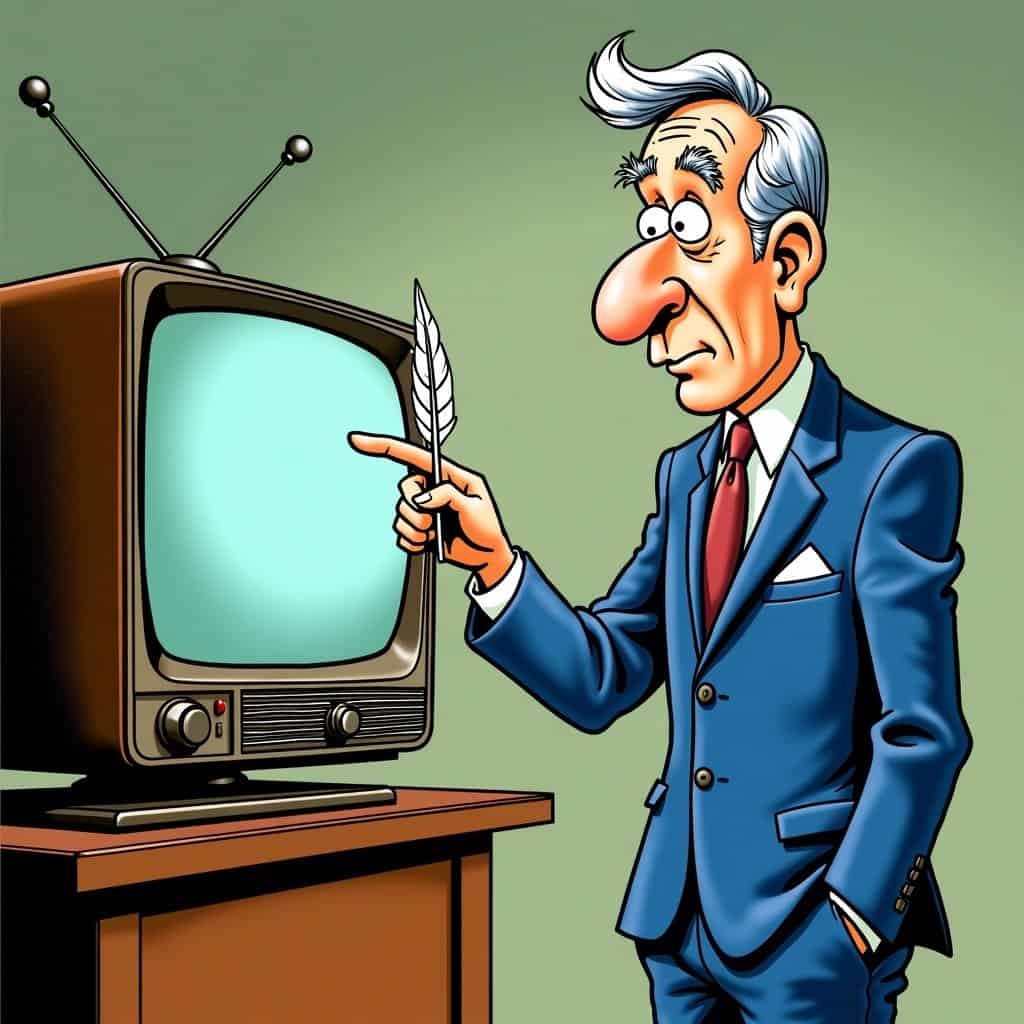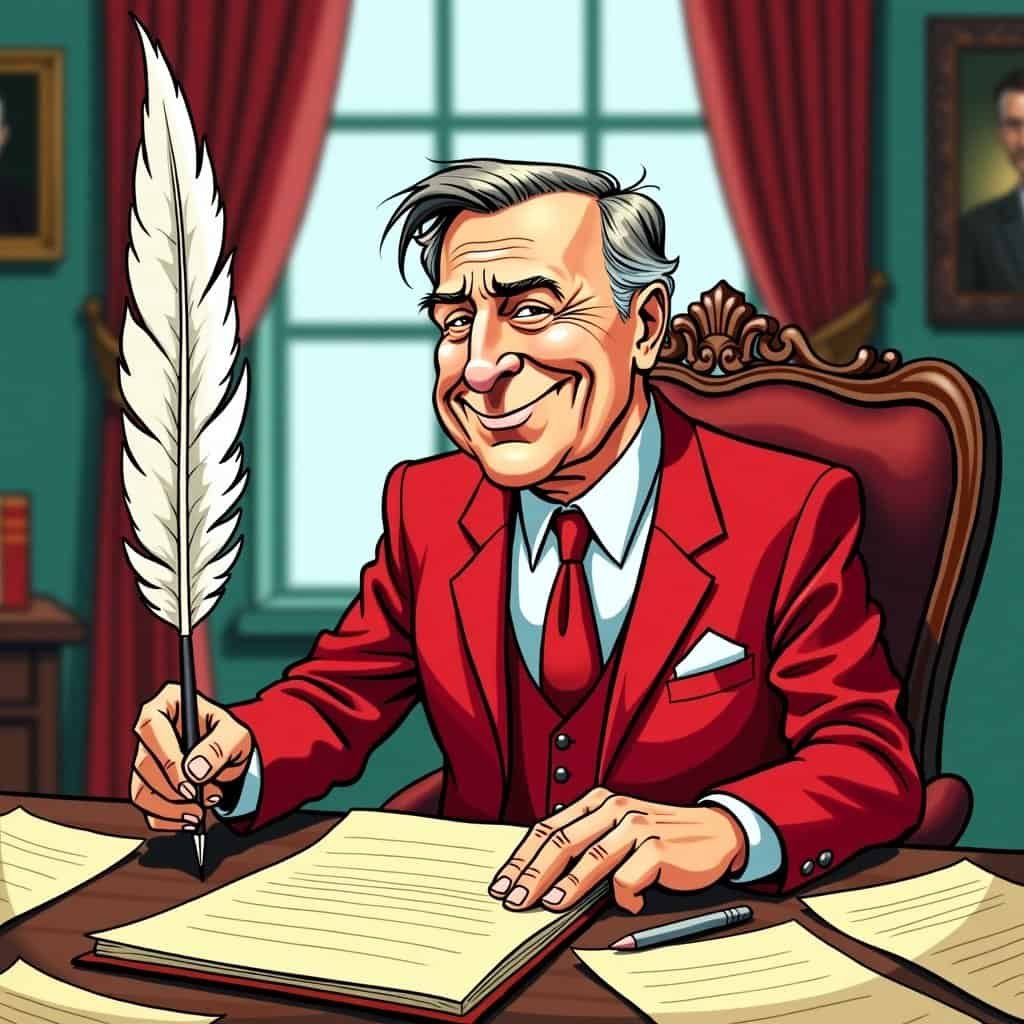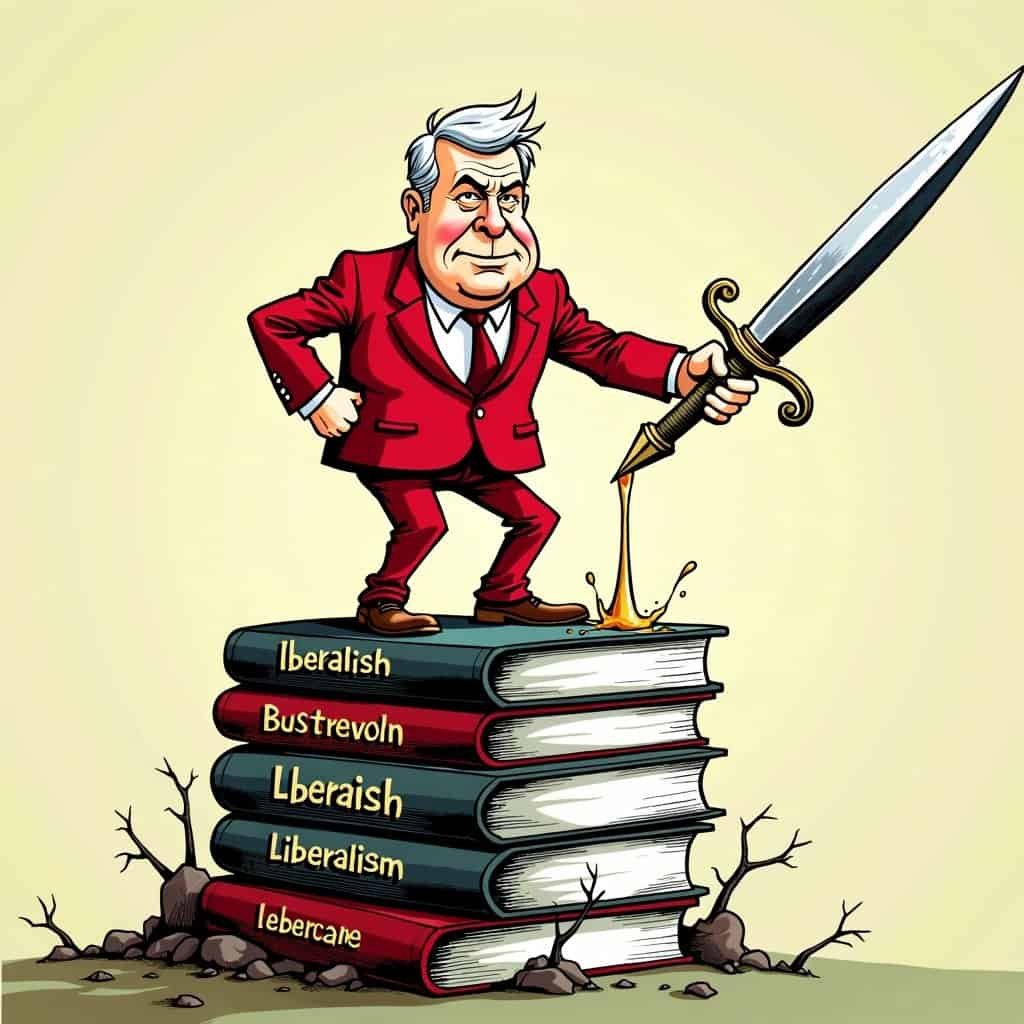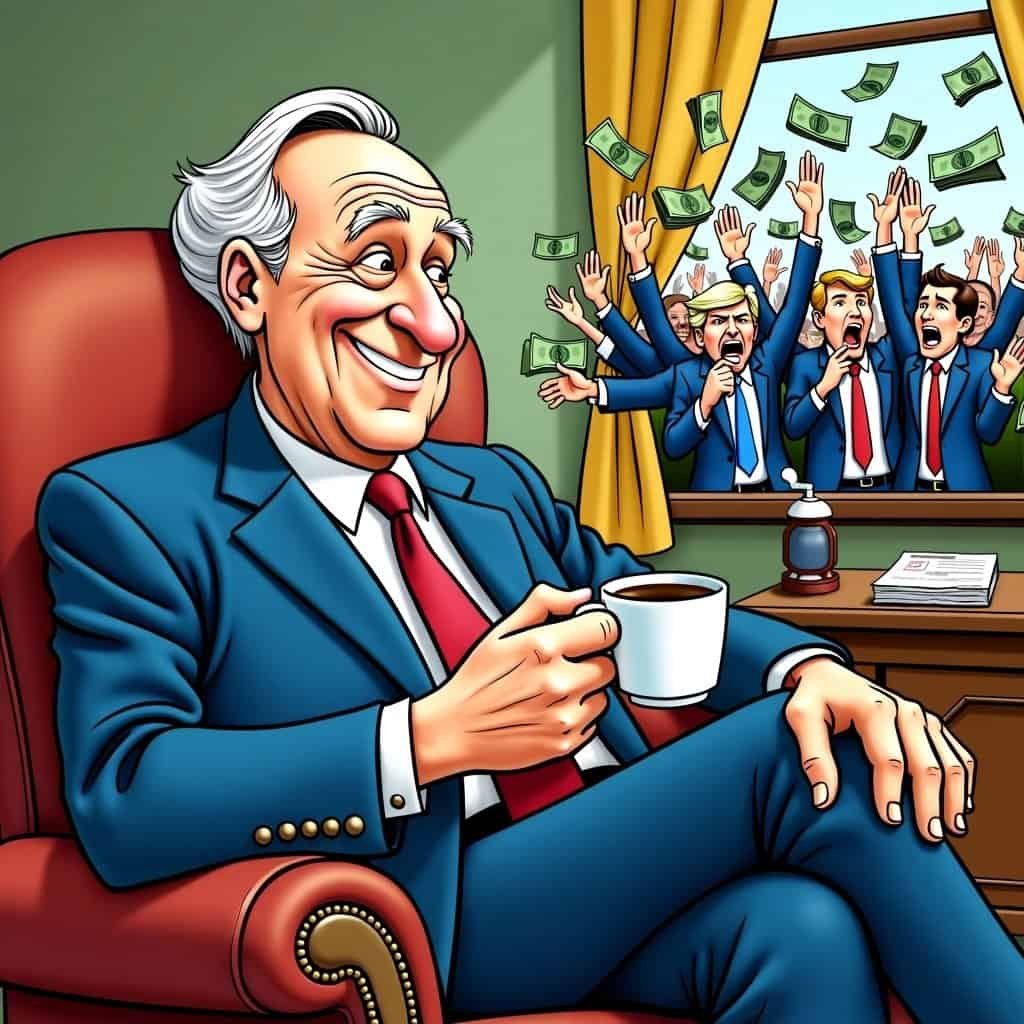Ah, William F. Buckley Jr.—the man who gave intellectual weight to the conservative movement, and whose sharp wit could probably turn a liberal into a Reaganite faster than you can say “supply-side economics.” Let’s not forget his staunch support for traditional morality, a concept so rare these days it’s like spotting a unicorn at a vegan BBQ.
What’s this ‘traditional morality’ all about? Well, it’s the good old lessons our parents drilled into us, before social media influencers started setting life goals for the younger crowd. We’re talking core values: family, hard work, personal responsibility, and that old-fashioned idea called personal virtue. Yes, you heard it right—the stuff your college professor told you to mock at Thanksgiving dinner!
Buckley championed these ideals like a knight in shining armor. When cultural trends were changing faster than a chameleon on a disco floor, he stood firm as a rock of sanity. While academic big shots argued for moral relativism—you know, the notion that “your truth” could be as different from “my truth” as apples from oranges—Buckley held the line for timeless truths that have steered us well for centuries.
Buckley’s Fight Against Liberal Bias
He famously took on the left-wing establishment, starting with his eye-opening work, ‘God and Man at Yale.’ In it, he exposed the sneaky liberal bias creeping into one of America’s top universities. He made it crystal clear that straying from our moral roots was why society was, let’s say, less productive and more inclined to wear tie-dye shirts. And don’t get me started on the long hair!
The Slippery Slope of Moral Decline
In Buckley’s eyes, the erosion of morality wasn’t just about personal choices; it was a full-blown national crisis. He argued—and boy, was he onto something—that without a shared moral compass, society starts to unravel. Look around, folks; doesn’t it feel like we’re always one viral video away from total chaos?
Buckley’s Wisdom: A Manual for Today
But don’t lose hope! Buckley’s insights aren’t just history; they’re practically a how-to guide for fixing things today. Liberals might have you believe that more government control and bureaucratic red tape are the answer to every problem. Want to make the world better? Just raise taxes and spread the wealth around! Yeah, that’ll do the trick!
On the flip side, Buckley pushed the idea that a thriving society starts with the individual. Imagine that! Personal responsibility, self-control, and moral behavior don’t just boost one person; they lift the whole community. Government can’t fix moral failures, but it sure can make them worse by creating dependency and taking away personal choice.
The Importance of Family Values
Take family values, for instance. The liberal approach often downplays the traditional family unit, favoring more “progressive” setups. But Buckley knew that lasting values were the backbone of a stable and thriving society. He argued that strong families—built on love, respect, and moral guidance—are the foundation of societal health and prosperity. Liberals, of course, saw this as some outdated and oppressive scheme. Isn’t it funny how timeless values suddenly seem old-fashioned when you’ve got a progressive agenda to push?
The Value of Hard Work
Then there’s the idea of hard work. Buckley embraced the conservative motto best said by another great Republican: Give a man a fish, he eats for a day. Teach a man to fish, and well, he’s eating sushi for a lifetime. The welfare state, on the other hand, trains people to expect handouts. And hey, if that isn’t a surefire way to kill innovation and productivity, I don’t know what is!
The Role of Religion in Public Life
Last but not least, let’s talk about religion. Buckley wasn’t shy about promoting faith’s crucial role in public life. While he respected freedom of belief, he recognized that Judeo-Christian principles had long guided Western civilization. He might quip, “You don’t have to be religious, but it helps if the guy who fixes your car is.” After all, honesty, integrity, and community spirit tend to flourish more when rooted in faith.
Conclusion: Traditional Morality for Modern Times
In a nutshell, Buckley’s dedication to traditional morality isn’t just a sentimental nod to the good old days; it’s a vital prescription for today’s problems. His insights continue to offer a remedy for the moral mess we see around us. Promoting traditional morality isn’t just conservatism; it’s plain old common sense.
So, next time someone questions whether traditional morality matters, just point them to Buckley. And if they roll their eyes, ask if their trendy, 21st-century moral relativism has brought them any closer to real happiness and fulfillment. Spoiler alert: It hasn’t.
Table of Contents
- Buckley’s Fight Against Liberal Bias
- The Slippery Slope of Moral Decline
- Buckley’s Wisdom: A Manual for Today
- The Importance of Family Values
- The Value of Hard Work
- The Role of Religion in Public Life
- Conclusion: Traditional Morality for Modern Times
